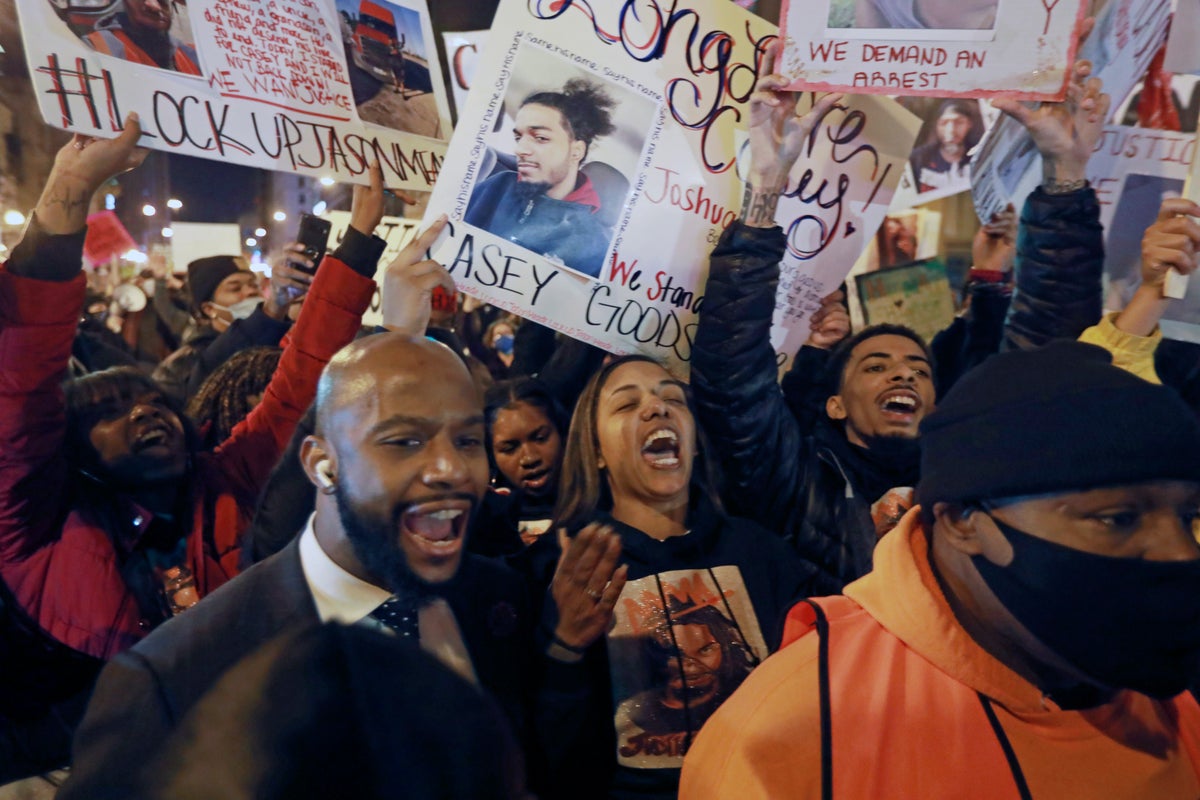
Support truly
independent journalism
The family of an Ohio man who was shot and killed by a former sheriff’s deputy will receive $7 million to settle a federal civil rights lawsuit over the December 2020 shooting.
The Franklin County Board of Commissioners unanimously approved the settlement late last month.
Casey Goodson Jr., 23, was shot multiple times in December 2020 as he tried to enter his grandmother’s Columbus home. His death — one of several involving Black people killed by white Ohio law enforcement officers over the past decade — sparked national outrage and cries for police reform.
Goodson’s family issued a statement calling the settlement historic.
“The settlement allows Casey’s family to resolve their civil claims against Franklin County, enabling them to concentrate fully on the upcoming murder retrial of Michael Jason Meade,” family attorney Sean Walton said. “While no amount of money can ever compensate for the loss of Casey, this settlement is a crucial acknowledgment of the profound impact his death has had on his family and the broader community.”
Meade was charged with murder and reckless homicide, but a mistrial was announced in February when a jury couldn’t agree on a verdict, ending tumultuous proceedings that saw four jurors dismissed. Prosecutors soon announced he would face a retrial, which is scheduled to start Oct. 31, but they have since dropped one of the two murder counts he faced.
Meade has pleaded not guilty, and his lawyers have said the prosecution’s decision to seek another trial was due to political pressure from local elected officials.
Meade testified that Goodson waved a gun at him as the two drove past each other, so he pursued Goodson because he said he feared for his life and the lives of others. He said he eventually shot Goodson because the young man turned toward him with a gun.
Goodson’s family and prosecutors have said he was holding a sandwich bag in one hand and his keys in the other when he was fatally shot. They do not dispute that Goodson may have been carrying a gun and note that he had a license to carry a firearm.
Goodson’s handgun, which had an extended magazine, was found on his grandmother’s kitchen floor with the safety mechanism engaged.
Meade was not wearing a body camera so there is no footage of the shooting, and prosecutors repeatedly asserted during the first trial that Meade is the only person who testified Goodson was holding a gun.







